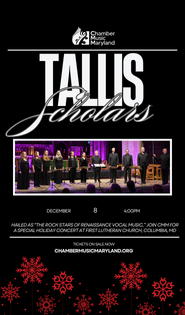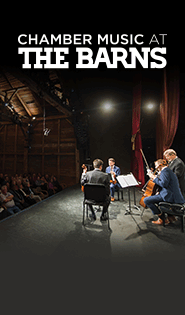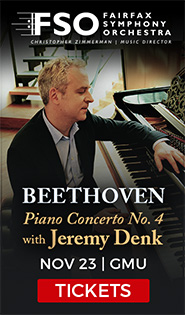Annapolis Chamber Music Fest breaks up summer doldrums with adventurous program

The Annapolis Chamber Music Festival musicians performed Beethoven’s Piano and Wind Quintet Saturday night at St. Martin’s Lutheran Church. Photo: WCR
Parched concertgoers can rely on the Annapolis Chamber Music Festival to end the summer drought of live music. The annual event has returned for a ninth season of pleasing programs combining rarities and old favorites through August 24.
Saturday evening’s opening concert at St. Martin’s Lutheran Church coincided with a stormy deluge much needed in the face of the broader, non-musical dry spell hitting the area.
The ongoing downpour, punctuated by the occasional flash of lightning and rumble of thunder, suited the dramatic opening work, Béla Bartók’s Contrasts. Composed in 1938, this folk dance-infused trio opened with moody, mysterious sounds from clarinetist Graeme Steele Johnson. He then closed out the first movement, with its bitonal echoes of music used at Hungarian military recruitings, in a stylish cadenza, capped by a piercing high note.
Pianist Alice Chenyang Xu kept this often wild piece on track with impressive accuracy, although at times her forceful touch threatened to overpower the softer moments. The balance proved most warm and lush in the central slow movement, which the composer said was influenced by the Blues section of Ravel’s Violin Sonata. Violinist Elizabeth Fayette gave devilish earthiness to the scordatura opening of the third movement, rounding out an agitated display of virtuosity with her own bravura cadenza.
The program next put the spotlight on American composer Jenni Brandon and her impressionistic piece Dawn. Wilden Dannenberg brought impeccable technique to the multiple challenges of the virtuosic French horn part, including intense stopped notes, slides, growls, and an extensive range. Remaining at the keyboard, Xu provided atmospheric accompaniment, from the opening upward ostinato, helping to depict what the composer claimed was “the sparkle of a sunrise, the swift winds, and the inevitability of the rising dawn.”
After intermission came the string trio Insight, composed in 2002 by Dobrinka Tabakova, a composer born in Bulgaria in 1980 and now resident in London. Violinist Miho Saegusa, violist Hannah Burnett, and cellist Madeline Fayette struck a beautiful ensemble balance in this meditative work, marked by many long notes in unison and triads. Gently groaning glissandi added a folksy echo of the Bartók piece played earlier, with sounds the composer likened to an accordion.
The central fast section, in a more contrapuntal texture, revealed occasional minor weaknesses in the lower strings, without diminishing the ensemble effect. Saegusa, on the other hand, excelled with an especially evanescent sound, even in the daunting passages of flageolet harmonics, notes so high and fragile in tone that they almost vanished like wisps of smoke.
Beethoven’s Quintet for Piano and Winds closed out the evening on a sunnier note. Dannenberg’s horn, Steele Johnson’s clarinet, Lillian Copeland’s oboe, and Rémy Taghavi’s bassoon formed an ideally balanced wind component, both as an ensemble and in their many striking solo moments. The slow introduction to the first movement, marked by solid unison lines, led to a pleasingly paced Allegro ma non troppo, wistful and lyrical.
Miles Fellenberg, now at the piano, also tended to play too loudly at times, although with glittering technical prowess that produced flowing runs and agile handling of awkward leaps. Dannenberg stood out for athletic arpeggiation in the riffs Beethoven added for the horn in the first movement’s coda. Kudos to Copeland and Taghavi for poignant oboe and bassoon solos in the gorgeous slow movement, in which a more restrained Fellenberg added a note of graceful composure, especially in the heavily decorated repeat of the main theme.
Although the concluding Rondo could have benefited from a slightly slower tempo, this jaunty performance sparkled with excitement, especially in the moody minor-key section in the middle of the movement. Fellenberg’s cadenza-like flourishes, added by Beethoven before the returns of the movement’s recurring theme, all fell into place stylishly. A Haydnesque comic moment in the final statement of the theme, in which the winds seem to enter early or late, as if by mistake, added a final sly wink to this charming work of Beethoven’s early period.
The Annapolis Chamber Music Festival returns with a wind quintet by Nathalie Joachim, paired with music of Smetana, 3 p.m. Sunday. chambermusicannapolis.org





